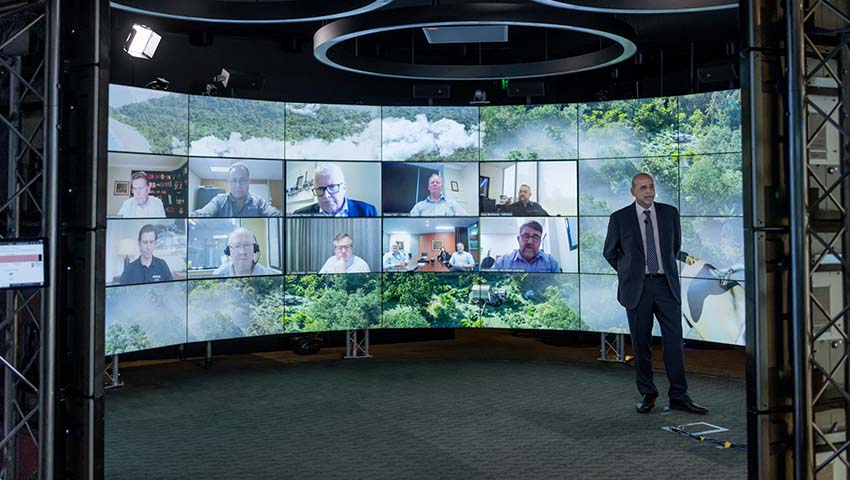Raytheon Australia has announced its team of 10 Australian SMEs to deliver a fully sovereign Australian industry capability to the Army if it is selected to deliver the LAND 129 Phase 3 tactical unmanned aerial system project.
To continue reading the rest of this article, please log in.
Create free account to get unlimited news articles and more!
Raytheon Australia’s fully integrated and low-risk solution features an operationally superior rotary wing unmanned aerial system (UAS) that is optimised for future growth as part of the company’s LAND 129 Phase 3 offering.
The company’s 20-year pedigree as a trusted and prime systems integrator, along with a team of SMEs including Schiebel Pacific Ltd and their world-leading CAMCOPTER S-100 UAS, will create a sovereign and sustainable UAS industry to support the Australian Defence Force now and into the future.
Michael Ward, managing director of Raytheon Australia, said this team gives expression to Raytheon Australia’s commitment to fulfil the requirements of LAND 129 Phase 3 in a way that will build a genuine sovereign industrial capability.
The team, which would be led by Raytheon Australia, includes the following companies:
- Schiebel Pacific Ltd, Nowra
- Air Affairs Australia, Nowra
- Innovation Composites, Nowra
- MMC Learning and Development Pty Ltd, Sydney
- Calytrix, Perth
- Penten, Canberra
- Varley, Newcastle
- Sentient Vision, Melbourne
- Rojone, Sydney
- Thomas Global, Sydney
“Our team brings Raytheon Australia together with more than 10 Australian SMEs and suppliers to deliver a solution for LAND 129 Phase 3 program delivered by Australians for the Australian Defence Force. Raytheon Australia will be working with local suppliers to foster Australian industrial sovereignty, prioritising Defence’s operational needs,” Ward explained.
Raytheon Australia’s solution will provide a superior Australian capability for Army that will enable 150 skilled jobs across the country. The team’s solution also prioritises regional investment and the promotion of manufacturing in Australia, with the S-100 to be assembled, and parts to be sourced and manufactured, in-country.
In a virtual discussion with the LAND 129-3 solution team, all the partners discussed the way such an arrangement benefits the broader defence supply chain, creating job and export opportunities, while delivering on the ADF’s capability requirements.
Ward said, “We will deliver a highly capable, flexible and scalable solution that offers the lowest risk and the greatest opportunity for a sovereign UAS capability for Australia.”
As part of the LAND 129 Phase 3 program, Defence is looking for a capability to replace the SHADOW 200’s current capability set, which includes EO/IR stabilised imagery, communications relay payload, laser designation, electronic line-of-sight communications and advanced simulation.
As part of its efforts to expand its TUAS capabilities, Defence is looking for the new capability to include more advanced modular payloads, encrypted communications, a reduced equipment footprint, runway independent operations, quieter operations, operations in more classes of airspace (apart from military restricted airspace), increased environmental operating envelope and increased connectivity and networking in the battlespace.
The new TUAS requirements must also meet the following:
- TUAS – an air vehicle with a GTOW of more than 25 kilograms and less than 250 kilograms;
- System – a TUAS consisting of, at a minimum, an air vehicle and a ground control station (GCS);
- Subsystem – a subsystem of a TUAS, e.g. propulsion, avionics, autopilot, GCS, data link;
- Component – a component of an TUAS, e.g. a battery, antenna, servo motor; and
- Services – services related to TUAS, e.g. operations, engineering, maintenance, training.
Defence is looking to hear from Australian suppliers operating in the TUAS space in terms of systems, subsystems, payloads and components.
The next phase of the project will focus on a competitive evaluation of more comprehensive tendered solutions from the four primes, prior to progressing the project to government consideration in 2021.

 Login
Login







